1,1,3,3-Tetramethyldisiloxane
Synonym(s):1,1,3,3-Tetramethyldisiloxane
- CAS NO.:3277-26-7
- Empirical Formula: C4H14OSi2
- Molecular Weight: 134.32
- MDL number: MFCD00008256
- EINECS: 221-906-4
- SAFETY DATA SHEET (SDS)
- Update Date: 2025-09-25 17:15:13

What is 1,1,3,3-Tetramethyldisiloxane?
Description
1,1,3,3-Tetramethyldisiloxane is soluble in many organic solvents, such as aromatic hydrocarbon and petroleum hydrocarbons, and so on. This product is a kind of widely used organic silicon intermediates, and usually be used as organic silicon blocking agent. Due to containing reactive Si-H groups in the molecular structure, it can be used in the synthesis of copolymer macromolecule by hydrosilylation. The synthesis of copolymer macromolecule can be made into a series of reactive silicone oil.
Chemical properties
Colorless or yellowish transparent liquid
The Uses of 1,1,3,3-Tetramethyldisiloxane
1,1,3,3-Tetramethyldisiloxane is used as a monomer in the production of silicone polymers or silicone resins. It is used as a precursor to prepare other organosilicon compounds. It is also utilized in non-aqueous polymer preparation as well as a laboratory reagent.
The Uses of 1,1,3,3-Tetramethyldisiloxane
1. Synthesis of polysiloxane containing faculties end groups.
2. Can be used for the preparation of high performance organic silicone surfactants.
3. Applicable to the production of many products, such as addition silicon rubber, silica gel, Hydrogenpolysiloxane and plastic, resin modifier, dendrite polymer special additives, etc.
The Uses of 1,1,3,3-Tetramethyldisiloxane
1, 1, 3, 3-Tetramethyldisiloxane is a kind of siloxane derivative, and can be used as a monomer for the preparation of silicone polymers or silicone resins. It is used as an intermediate for preparing other organosilicon compounds. It is also used in non-aqueous polymer preparation as well as a laboratory reagent. In organic synthesis, it finds an application as an effective reducing agent in platinum-catalyzed reduction of carboxamides to amines as well as in the Au/TiO2-catalyzed hydrosilylation of carbonyl compounds (e.g., reduction of aldehydes or ketones) relative to monohydrosilanes. It can also enable a direct bromination of carboxylic acids in the presence of indium bromide (InBr3) as catalyst.
Flammability and Explosibility
Highly flammable
Purification Methods
1,Possible impurity is 1,1,5,5-tetramethyl-3-trimethylsiloxytrisiloxane b 154-155o/733mm. Fractionate it, collect fractions boiling below 80o and re-fractionate it. Its purity can be analysed by alkaline hydrolysis and measuring the volume of H2 liberated followed by gravimetric estimation of silica in the hydrolysate. It is unchanged when stored in glass containers in the absence of moisture for 2-3 weeks. Small amounts of H2 are liberated on long storage. Care should be taken when opening a container due to pressure developed. [Speier et al. J Am Chem Soc 79 974 1958, Emeléus & Smythe J Chem Soc 609 1958, IR: Kriegsmann Z Anorg Chem 299 78 1959, Beilstein 4 IV 3991.]
References
https://www.alfa.com/en/catalog/B23697/
http://www.organic-chemistry.org/chemicals/reductions/tetramethyldisiloxane-TMDSO.shtm
https://www.infona.pl/resource/bwmeta1.element.elsevier-722236cc-df38-37aa-bbed-029ec07d525f
Properties of 1,1,3,3-Tetramethyldisiloxane
| Melting point: | <-78°C |
| Boiling point: | 70-71 °C (lit.) |
| Density | 0.76 g/mL at 25 °C (lit.) |
| vapor pressure | 250 hPa (20 °C) |
| refractive index | n |
| Flash point: | 14 °F |
| storage temp. | Store at <= 20°C. |
| solubility | soluble in Chloroform |
| pka | 11.9[at 20 ℃] |
| form | liquid |
| Specific Gravity | 0.757 |
| color | colorless |
| explosive limit | 0.8-62.9%(V) |
| Water Solubility | DECOMPOSES |
| Sensitive | Moisture Sensitive |
| Hydrolytic Sensitivity | 3: reacts with aqueous base |
| BRN | 1733364 |
| CAS DataBase Reference | 3277-26-7(CAS DataBase Reference) |
| NIST Chemistry Reference | ((CH3)2SiH)2O(3277-26-7) |
| EPA Substance Registry System | Disiloxane, 1,1,3,3-tetramethyl- (3277-26-7) |
Safety information for 1,1,3,3-Tetramethyldisiloxane
| Signal word | Danger |
| Pictogram(s) |
 Flame Flammables GHS02 |
| GHS Hazard Statements |
H225:Flammable liquids |
| Precautionary Statement Codes |
P210:Keep away from heat/sparks/open flames/hot surfaces. — No smoking. P233:Keep container tightly closed. P240:Ground/bond container and receiving equipment. P241:Use explosion-proof electrical/ventilating/lighting/…/equipment. P242:Use only non-sparking tools. P243:Take precautionary measures against static discharge. |
Computed Descriptors for 1,1,3,3-Tetramethyldisiloxane
| InChIKey | NVYQDQZEMGUESH-UHFFFAOYSA-N |
1,1,3,3-Tetramethyldisiloxane manufacturer
Cynor Laboratories
Triveni Interchem Private Limited (Group Of Triveni Chemicals)
New Products
4,4-Difluoropiperidine hydrochloride tert-butyl 9-methoxy-3-azaspiro[5.5]undecane-3-carboxylate Indole Methyl Resin N-Isopropylurea N,N-Dicyclohexylcarbodiimide(DCC) MELDRUMS ACID 5-METHYLISOXAZOLE-4-CARBOXYLIC ACID Magnessium Bis glycinate Zinc ascorbate 1-bromo-2-butyne 2-acetamidophenol 9(10H)-anthracenone Erythrosin B, 4-Piperidinopiperidine 2-((4-morpholinophenylamino) (methylthio) methylene) malononitrile 2,4-dihydroxybenzaldehyde 3-(4-morpholinophenylamino)-5-amino-1H-pyrazole-4-carbonitrile Methyl 2-methylquinoline-6-carboxylate 2,6-dichloro-4-nitropyridine 4-Bromo-2-chlorobenzonitrile 2-(benzylamino)acetic acid hydrochloride 4-(tert-Butoxycarbonylamino)but- 2-ynoic acid 3,4-dihydro-2H-benzo[b][1,4]dioxepine 1-Phenyl-1-cycloprppanecarboxylicacidRelated products of tetrahydrofuran
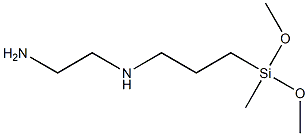
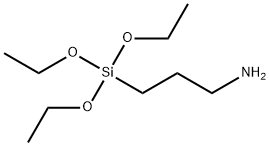

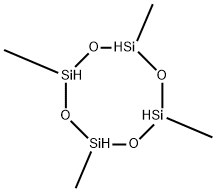


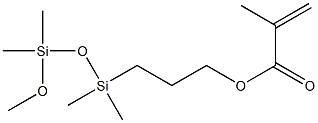

You may like
-
 1,1,3,3-Tetramethyldisiloxane CAS 3277-26-7View Details
1,1,3,3-Tetramethyldisiloxane CAS 3277-26-7View Details
3277-26-7 -
 1,1,3,3-Tetramethyldisiloxane, 97% CAS 3277-26-7View Details
1,1,3,3-Tetramethyldisiloxane, 97% CAS 3277-26-7View Details
3277-26-7 -
 1,1,3,3-Tetramethyldisiloxane CAS 3277-26-7View Details
1,1,3,3-Tetramethyldisiloxane CAS 3277-26-7View Details
3277-26-7 -
 1,1,3,3-Tetramethyldisiloxane (TMDS) extrapure CAS 3277-26-7View Details
1,1,3,3-Tetramethyldisiloxane (TMDS) extrapure CAS 3277-26-7View Details
3277-26-7 -
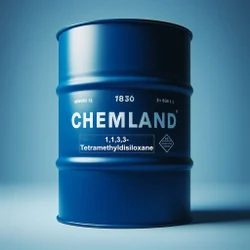 Technical Grade 1 1 3 3 Tetramethyldisiloxane, For Industrial, LiquidView Details
Technical Grade 1 1 3 3 Tetramethyldisiloxane, For Industrial, LiquidView Details
3277-26-7 -
 1,1,3,3-Tetramethyldisiloxane, 98%, DrumView Details
1,1,3,3-Tetramethyldisiloxane, 98%, DrumView Details
3277-26-7 -
 Technical Grade 1 1 3 3 Tetramethyldisiloxane, For Laboratory, LiquidView Details
Technical Grade 1 1 3 3 Tetramethyldisiloxane, For Laboratory, LiquidView Details
3277-26-7 -
 1,1,3,3-TetramethyldisiloxaneView Details
1,1,3,3-TetramethyldisiloxaneView Details
3277-26-7
